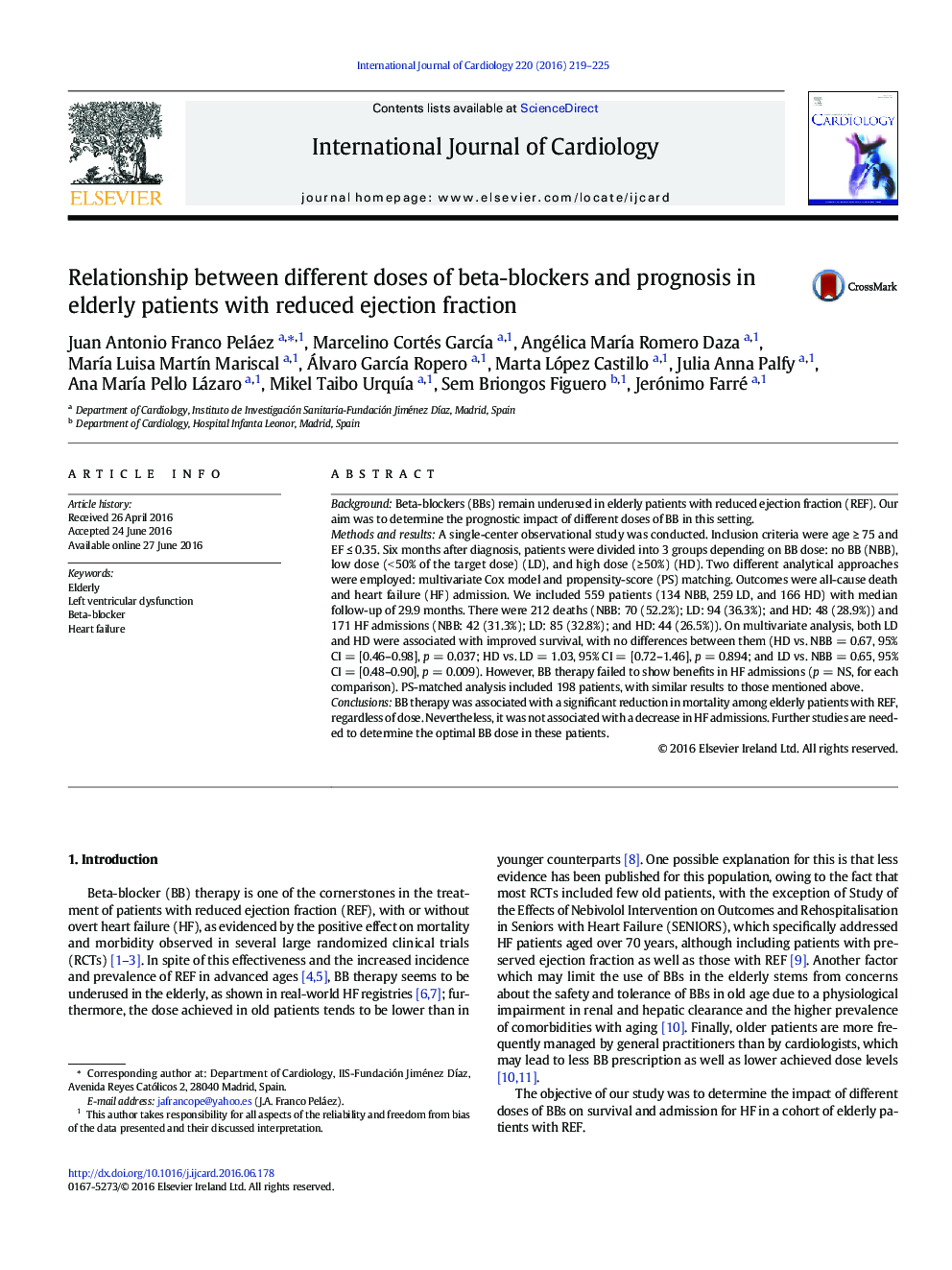| کد مقاله | کد نشریه | سال انتشار | مقاله انگلیسی | نسخه تمام متن |
|---|---|---|---|---|
| 5963452 | 1576128 | 2016 | 7 صفحه PDF | دانلود رایگان |
BackgroundBeta-blockers (BBs) remain underused in elderly patients with reduced ejection fraction (REF). Our aim was to determine the prognostic impact of different doses of BB in this setting.Methods and resultsA single-center observational study was conducted. Inclusion criteria were age â¥Â 75 and EF â¤Â 0.35. Six months after diagnosis, patients were divided into 3 groups depending on BB dose: no BB (NBB), low dose (< 50% of the target dose) (LD), and high dose (â¥Â 50%) (HD). Two different analytical approaches were employed: multivariate Cox model and propensity-score (PS) matching. Outcomes were all-cause death and heart failure (HF) admission. We included 559 patients (134 NBB, 259 LD, and 166 HD) with median follow-up of 29.9 months. There were 212 deaths (NBB: 70 (52.2%); LD: 94 (36.3%); and HD: 48 (28.9%)) and 171 HF admissions (NBB: 42 (31.3%); LD: 85 (32.8%); and HD: 44 (26.5%)). On multivariate analysis, both LD and HD were associated with improved survival, with no differences between them (HD vs. NBB = 0.67, 95% CI = [0.46-0.98], p = 0.037; HD vs. LD = 1.03, 95% CI = [0.72-1.46], p = 0.894; and LD vs. NBB = 0.65, 95% CI = [0.48-0.90], p = 0.009). However, BB therapy failed to show benefits in HF admissions (p = NS, for each comparison). PS-matched analysis included 198 patients, with similar results to those mentioned above.ConclusionsBB therapy was associated with a significant reduction in mortality among elderly patients with REF, regardless of dose. Nevertheless, it was not associated with a decrease in HF admissions. Further studies are needed to determine the optimal BB dose in these patients.
Journal: International Journal of Cardiology - Volume 220, 1 October 2016, Pages 219-225
